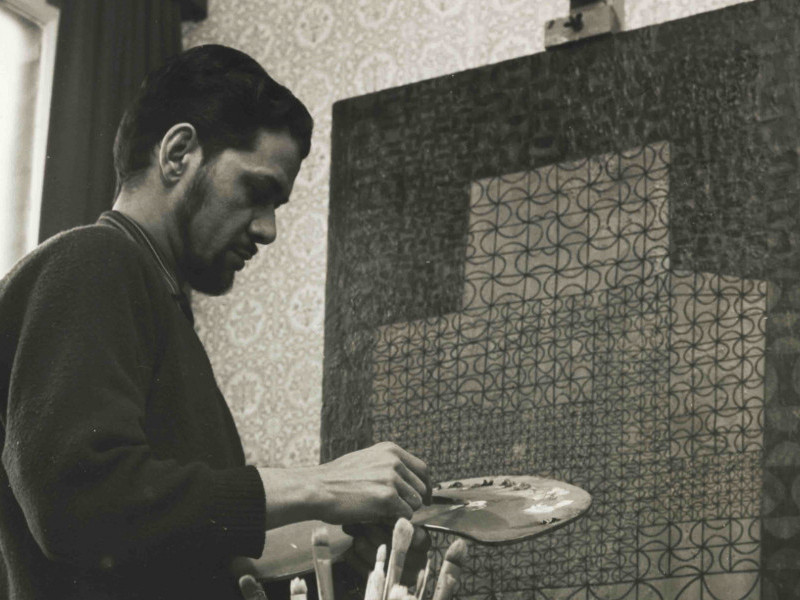Overview
Anwar Jalal Shemza began his artistic career while studying at the Mayo School of Industrial Arts (now the National College of Arts) in Lahore. Already an established artist and writer in Pakistan, he moved to London in 1956 to study at the Slade School of Fine Art. Here, he developed a visual language that placed aspects of Islamic art, such as calligraphy and the concept of the palimpsest, in dialogue with Western art history’s formal and philosophical considerations.
Shemza's works Advancing & receding in yellow ochre on olive green (1963) and Sun and the Sea (1966) reflect the diverse influences of his transitional period at the Slade and his decisively modern diasporic perspective on both Islamic and Western aesthetics. The works reveal the influence of carpet patterns, calligraphic forms and the Mughal architecture of Lahore as well as the rural landscape of Stafford, United Kingdom, drawn broadly and deeply from both his Pakistani and British environments. These pieces also elaborate on the artist's interest in the geometry and abstraction of Western minimalism as seen in the work of artists Paul Klee, Piet Mondrian and Wassily Kandinsky. For Shemza, the circle and the square held unique places in his art practice. As he inscribed in Urdu script on the surface of a painting from this period, 'One circle, one square, one problem: one life is not enough to solve it.'
Related Content

Unsettled Objects
Sharjah Art Foundation presents Unsettled Objects, featuring new acquisitions and rarely seen works from the Foundation's Collection; the artists and works on display explore art history’s hidden stories.

Shemza, Anwar Jalal
In his paintings, prints and etchings, Anwar Jalal Shemza explored modernism from both Islamic and Western perspectives.
